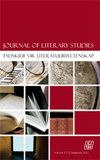电影《卢旺达大屠杀》中对胡图族人的蔑视(2012)
IF 0.1
4区 文学
0 LITERARY THEORY & CRITICISM
引用次数: 0
摘要
关于卢旺达种族灭绝的某些学术著作和电影作品似乎批准了一种新的经典,简化了图西族和胡图族在种族灭绝战争之前和期间的种族间关系。《卢旺达卢旺达》是一部改变了对胡图人暴力形象的电影,他们都渴望杀死图西人。影片拒绝认同这种神话和片面刻画胡图族/图西族关系。它表明有许多胡图族人因为帮助图西族人而死亡。影片暗示影评人给这类无私的人贴上胡图族温和派的标签是不恰当的。帮助图西族人的胡图族人只是影片中的英雄。马姆达尼令人信服地指出,在卢旺达种族灭绝的死亡舞台上,有胡图族狂热分子,有不情愿的胡图族人,有我们胁迫的人,最重要的是,有选择隐藏图西族人的人。电影《卢旺达卢旺达》挑战了卢旺达官方的意识形态,这种意识形态把胡图族人定型为与卢旺达种族灭绝有关的人。在这方面,这部电影的作者意识形态是修正主义的。本文章由计算机程序翻译,如有差异,请以英文原文为准。
Defying Stereotyping Hutu People in The Rwandan Genocide in The Film, Kinyarwanda (2012)
Summary Certain academic works and film productions on the Rwandan genocide appear to authorise a new canonicity that simplifies interracial relations between the Tutsi and Hutu people before and during the genocidal war. Kinyarwanda is a film that revises the depiction of Hutus as violent people, all eager to kill Tutsis. The film refuses to endorse this mythology and one-sided characterisations of Hutu/Tutsi relations. It shows that there were many Hutu people who perished because they had assisted Tutsi people. It is implied in the film that for film critics to label this category of selfless people Hutu moderates would be a misnomer. Hutus who assisted Tutsis are simply the heroes in the film. Mamdani has convincingly argued that, within the theatre of death in the Rwandan genocide, there were Hutu zealots, along with Hutus who were reluctant, those who we coerced and, most importantly, those who chose to hide Tutsis. The film Kinyarwanda defies the official Rwandese ideologies that stereotype Hutu people as guilty by association in respect of the Rwandan genocide. In this respect, the film’s authorial ideology is revisionist.
求助全文
通过发布文献求助,成功后即可免费获取论文全文。
去求助
来源期刊

Journal of Literary Studies
Multiple-
CiteScore
0.50
自引率
0.00%
发文量
0
期刊介绍:
The Journal of Literary Studies publishes and globally disseminates original and cutting-edge research informed by Literary and Cultural Theory. The Journal is an independent quarterly publication owned and published by the South African Literary Society in partnership with Unisa Press and Taylor & Francis. It is housed and produced in the division Theory of Literature at the University of South Africa and is accredited and subsidised by the South African Department of Higher Education and Training. The aim of the journal is to publish articles and full-length review essays informed by Literary Theory in the General Literary Theory subject area and mostly covering Formalism, New Criticism, Semiotics, Structuralism, Marxism, Poststructuralism, Psychoanalysis, Gender studies, New Historicism, Ecocriticism, Animal Studies, Reception Theory, Comparative Literature, Narrative Theory, Drama Theory, Poetry Theory, and Biography and Autobiography.
 求助内容:
求助内容: 应助结果提醒方式:
应助结果提醒方式:


